AUSTIN, Texas — Moving to the United States at age 16, Uche Dibiamaka found a sense of familiarity and home on the basketball court.
He fell in love with the sport at the age of 4 and left his home country of Australia to pursue collegiate basketball in America.
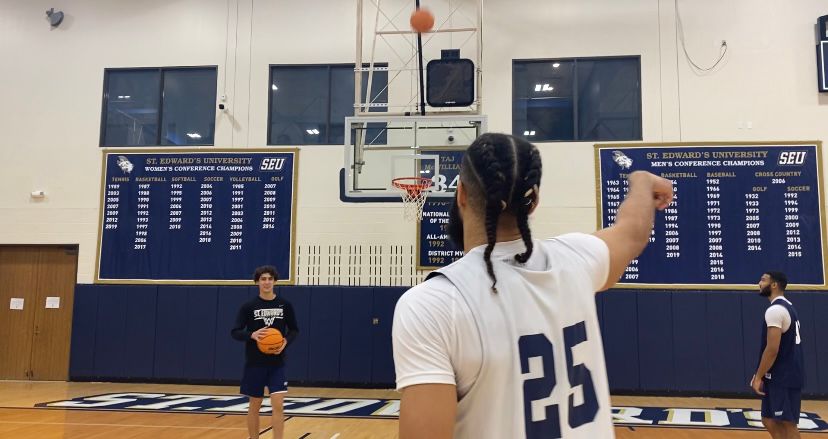
The transition was not easy for Dibiamaka. In fact, it created a cycle of isolation and negative self-talk.
“I put my guard up. No one could get close to me. I didn’t let anybody in. I feel like the terms ‘soft’ or ‘weak’ are thrown around way too much in the athlete world, so my problem was I got way too good at neglecting my emotions. I would leave my emotions at the door when I came to practice, which is fine, but I became way too good at it and I completely lost touch with my emotions,” Dibiamaka said.
The court was always the place Dibiamaka could escape from reality and relieve stress, until one day, it wasn’t. During his third year of college at UTRGV, his head coach, Lew Hill, passed away.
“When Coach Hill died, it was like I didn’t accept it. It was mid-season, so there was no time to grieve, there was no time for me to accept my trauma. It was just like we got to play games. We’re still in the season, so I would just neglect those emotions as well,” said Dibiamaka.
Neglecting his mental health not only affected his personal life, but also his relationships and the way he performed on the court.
Dibiamaka had a mental breakdown during his last game at UTRGV and was unable to finish.
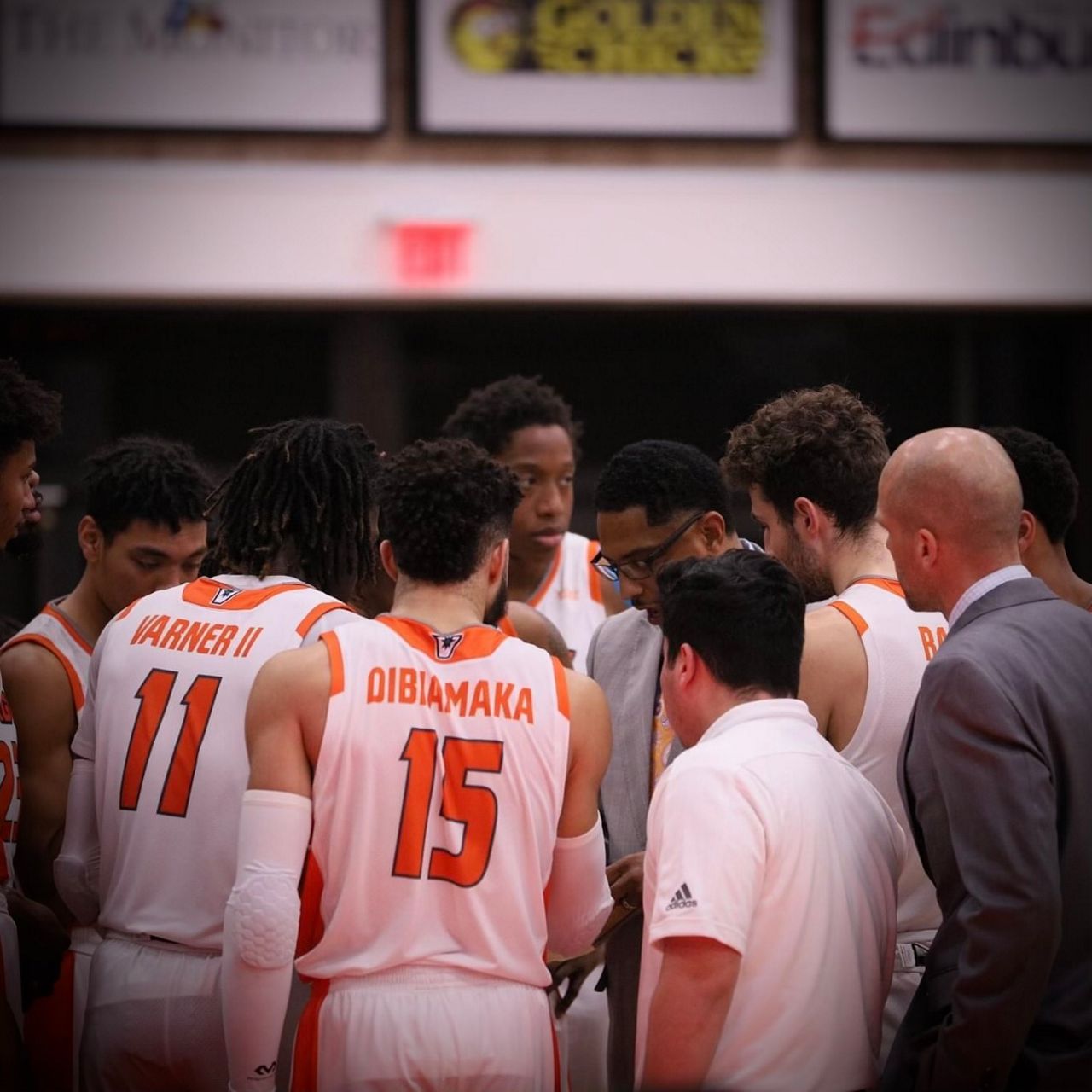
“It was a mental overload because it was like a tornado of emotions in my brain and I didn’t know how to deal with it and they just flooded me during the game to the point where I literally couldn’t play. I didn’t know what to do. I literally walked out the game, and I think at that point, I realized that there was a problem that needed to be addressed,” said Dibiamaka.
After a turbulent end to the season, Dibiamaka transferred to play at St. Edwards.
“I was always so intense, always so on edge. Coach Cook said last year that my teammates were walking on eggshells around me just because they didn’t know how to react to me. Hearing how I’m neglecting my emotions is affecting my teammates, at this new school, I didn't want it to be a repeat,” said Dibiamaka.
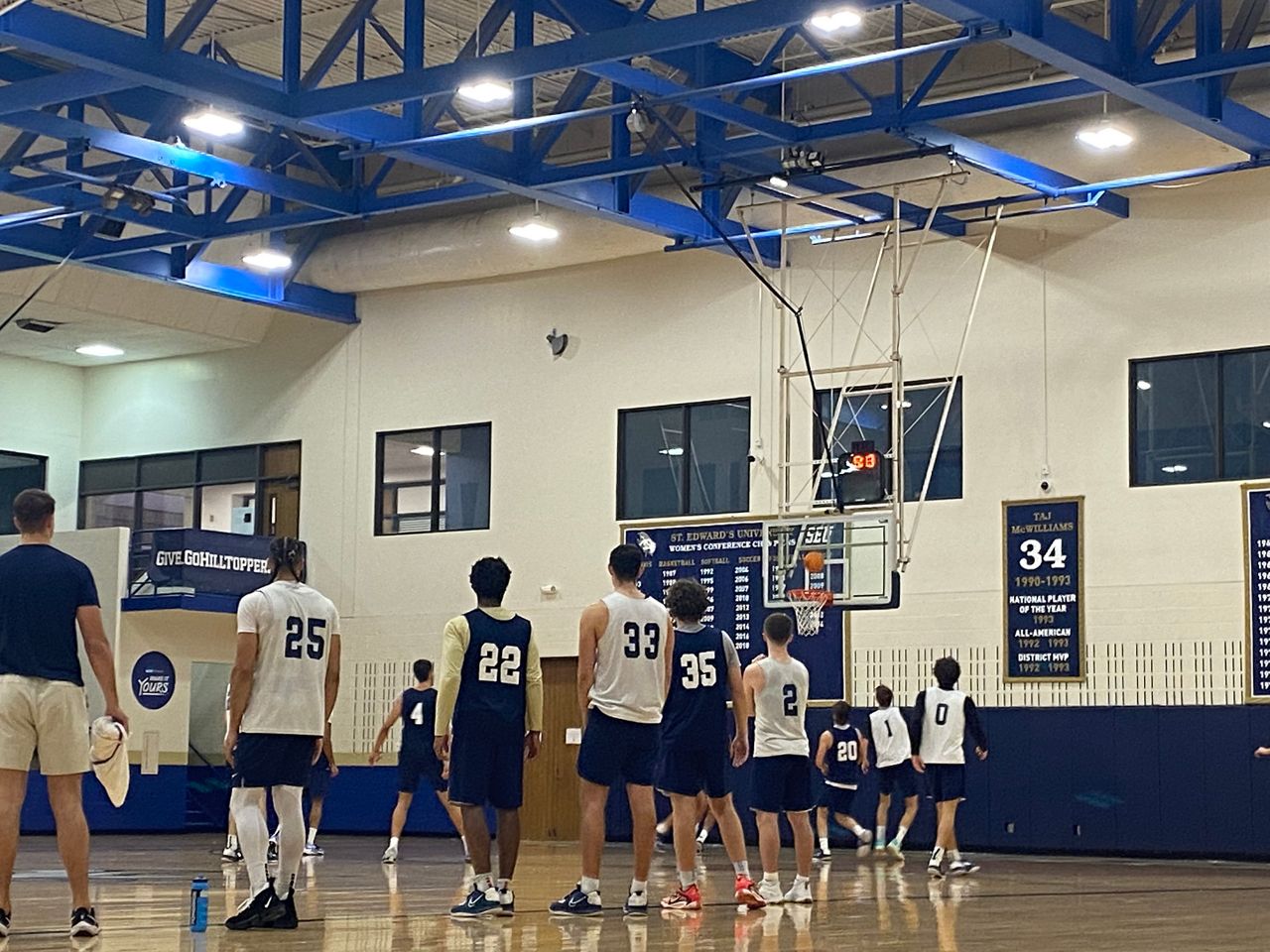
After much encouragement from his mom and coach, Dibiamaka decided to try therapy.
“He showed, first of all, this willingness. He left here end of COVID, arrived back in the U.S. and said, ‘Hmm. I’ve been thinking.’ And during that flight, something really shifted, and he started reaching out and said, 'Hey, I’m really struggling with this or I’m struggling with that,'” said Uche’s mom, Colleen Dibiamaka.
Therapy has helped Uche break down the emotional tornado that he had been avoiding and verbalize the thoughts in his mind.
“My therapist helped me address all the feelings in my head and help me let my guard down. I started to retrain my mind, rewire the way I think and develop psychological flexibility so I can adapt to the new situation,” said Uche Dibiamaka.
As Dibiamaka embarks on his mental health journey, he launched his own clothing line to document it and spread awareness to other student-athletes.
"The pressure on student-athletes, they go all day. If you come into St. Edwards at 6 o’clock in the morning, we have athletes here. If you come in here at 9 o’clock at night, there’s athletes here. There’s a strong academic regimen here at St. Edwards. There’s pressure to perform academically, there’s pressure to perform athletically, there’s pressure to perform socially,” said St. Edwards basketball head coach Andre Cook.
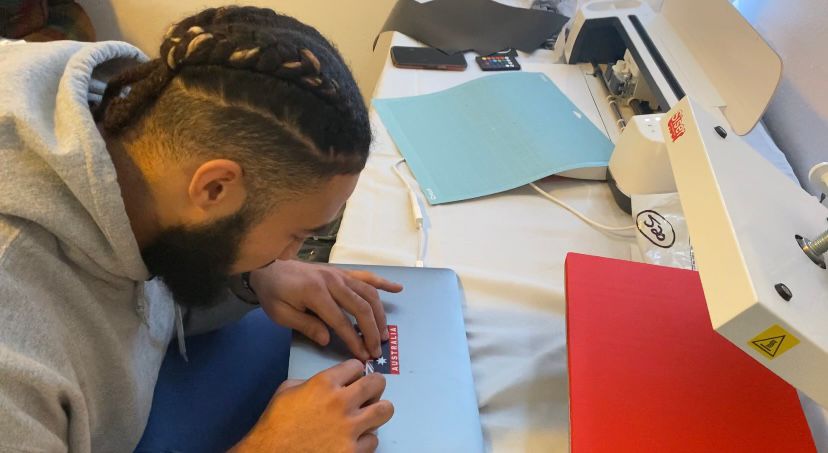
Dibiamaka's brand, Optimist Global, which he brought to life through a Cricket machine and a heat press in his apartment, is tailored toward student-athletes and reminds them to be aware of their state of mind as well as feelings and emotions.
“As an athlete, we are in the public light a lot, and I feel like it’s important for athletes to brand themselves. So one thing about my brand, when I created it, I didn’t really expect it to…I didn’t think this far ahead, but after a year and a half of the brand, it’s turned out that I’ve become an advocate for mental health, like my brand Optimist Global has become a part of my identity so the people who know me will associate my brand with me,” said Dibiamaka.
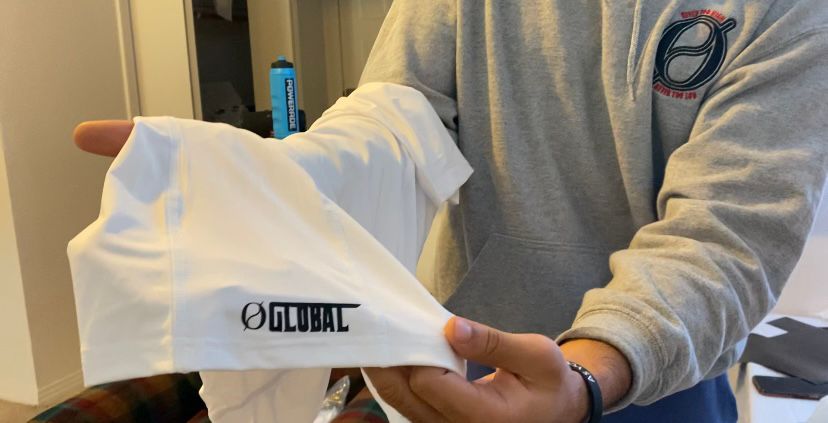
Even from thousands of miles away, his family can also feel his mental change and growth.
“I’m really proud of him because...he’s had to navigate a lot on his own and telephone and video support from the other side of the world, we’ve seen a change in him and so much more compassion for other people, which I think individually, it’s lovely to see, so much more compassion and empathy that he can then share with his teammates,” said Colleen Dibiamaka.
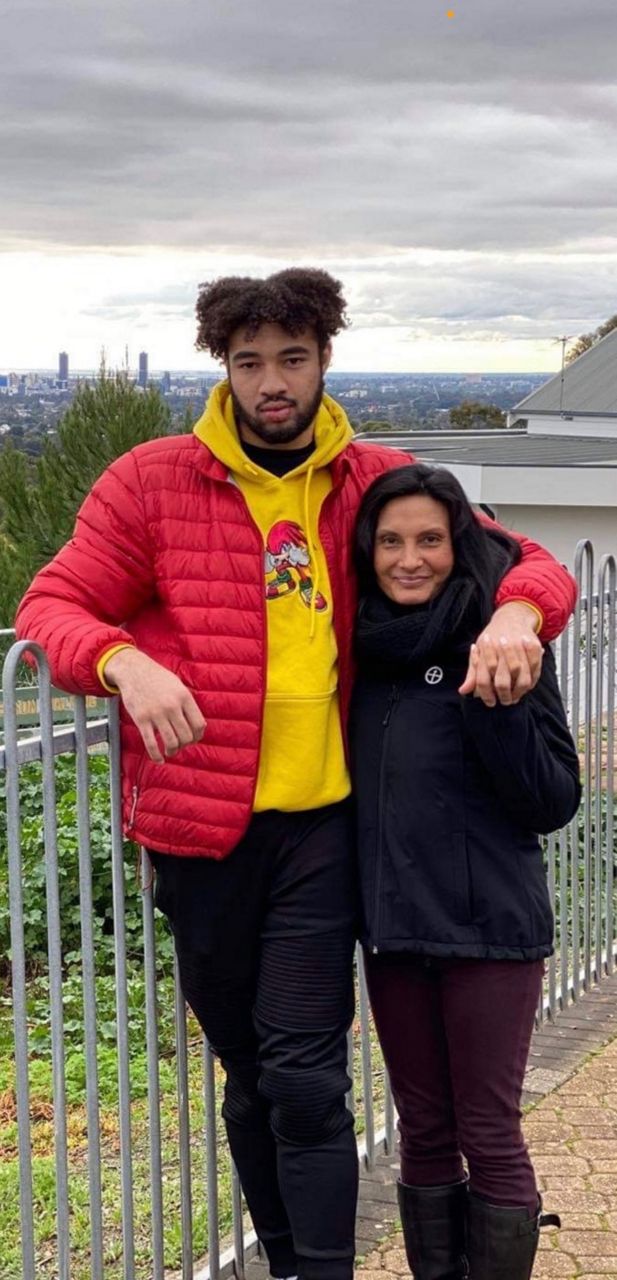
As Uche Dibiamaka finishes his last season with St. Edwards and prepares to enter the real world, he leaves with much more than just a basketball legacy. He has found his identity and peace in therapy, and he wants to remind other student-athletes they can do the same.
“Mental toughness isn’t the ability to leave your emotions at the door and come to practice. Mental toughness is the ability to be mindful of your emotions, understanding why you feel the way you feel, being able to control your emotions so your emotions do not control you while being able to perform at a high level,” said Dibiamaka.


